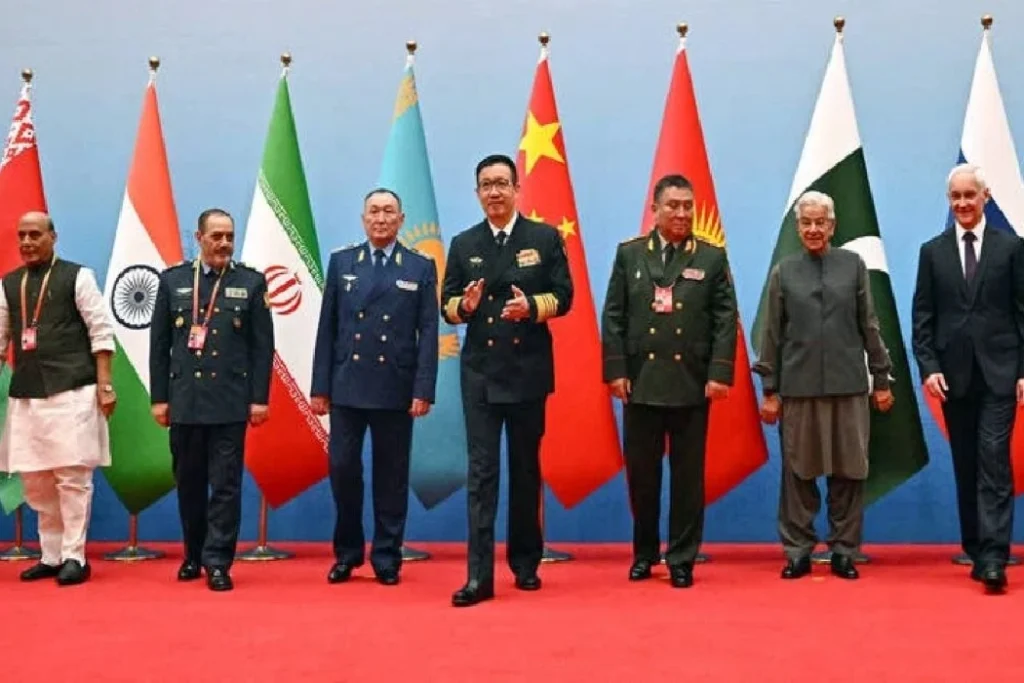
Qingdao/China: Defense Ministers from the Shanghai Cooperation Organization (SCO) member states convened in Qingdao, East China’s Shandong Province, for a pivotal meeting focused on solidifying military mutual trust and fostering pragmatic cooperation. The meeting, a key event hosted by China during its rotating presidency of the SCO in 2025, saw participants call for concerted efforts to address regional and international security challenges.
Chinese Defense Minister Dong Jun hosted and addressed the gathering, which included defense leaders from all 10 SCO member countries, as well as senior officials from the SCO Secretariat and the Regional Anti-Terrorist Structure (RATS). This year marks the first time that Belarus, a newly admitted full member, and Iran, which joined in 2023, participated in this capacity.
Against a backdrop of a complex and evolving international situation, the willingness of the SCO defense ministers to gather and engage in in-depth discussions on strengthening practical cooperation and maintaining regional security and stability was hailed as a very positive signal. Attendees delivered speeches offering measures and suggestions on international and regional security, as well as defense and security cooperation. They highly praised China’s proactive efforts and significant contributions to improving the SCO’s operating mechanisms and deepening multifaceted cooperation.
The meeting aimed to strengthen strategic communication, promote practical cooperation, and collectively safeguard regional peace and stability. While a joint statement could not be adopted due to a lack of consensus on specific wording regarding terrorism, particularly from India’s side, participating nations reiterated their commitment to countering the “three evils” of terrorism, separatism, and extremism. Pakistan’s Defense Minister Khawaja Asif, for instance, condemned Israel’s recent actions against Iran and emphasized collective efforts against terrorism, while India’s Defense Minister Rajnath Singh called for zero tolerance towards states using cross-border terrorism.
Since its inception in Shanghai in 2001, the SCO has grown from a regional organization of six members to a trans-regional entity with 10 full members (China, Russia, India, Iran, Kazakhstan, Kyrgyzstan, Pakistan, Tajikistan, Uzbekistan, and Belarus), two observer countries (Afghanistan and Mongolia), and 14 dialogue partners, highlighting its expanding influence and role as a “stabilizing anchor” in the Eurasian region.























